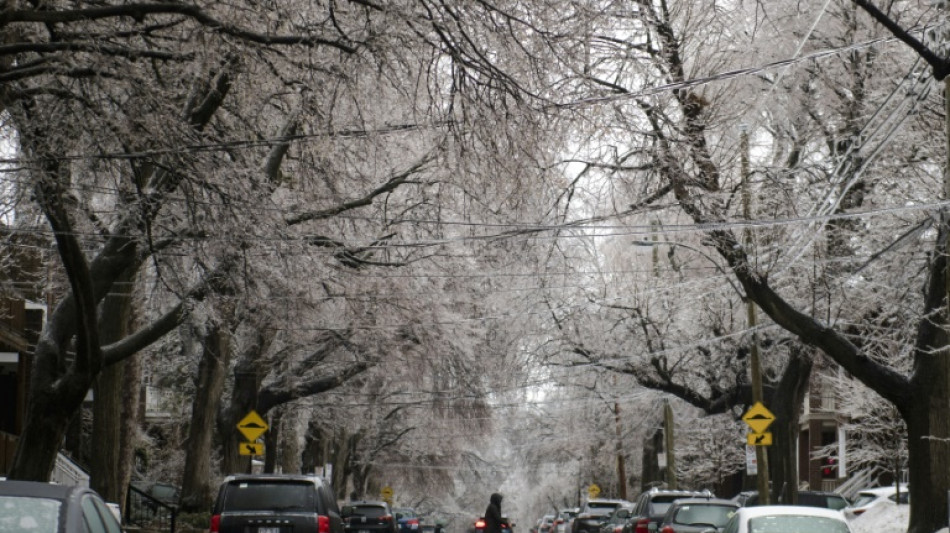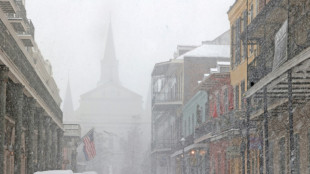

Quebec ice storm leaves two dead, million without power
An ice storm that battered eastern Canada left two dead and some million people without electricity on Thursday, as fallen trees blocked roads and downed power lines.
The storm pummeled Quebec and Ontario, Canada's two most populous provinces.
"Montreal is devastated," but the situation is "under control," Quebec Minister of Economy and Energy Pierre Fitzgibbon said at a media briefing after weather warnings were lifted.
Even so, authorities called for caution, advising people to stay away from downed power lines and avoid walking in wooded areas where trees laden with ice might topple.
An Ontario resident was killed by a falling tree on Wednesday, while a man in his 60s died Thursday morning, crushed by a branch he was trying to cut in his yard, about 60 kilometers (37 miles) west of Montreal.
Nearly one million customers were still without power Thursday evening, the majority in Quebec, but some lines had been restored.
It marked the largest power outage in Quebec since an ice storm in 1998, which threw the province into chaos for several weeks.
"It's a very difficult moment for Montrealers, for people across the region who have been hit by this ice storm," said Canadian Prime Minister Justin Trudeau, who was in Montreal.
The electricity outages were mainly due to tree limbs, heavy with ice, that snapped and damaged power lines. Road crews were still working Thursday evening to clear streets of debris.
By early afternoon, two of Montreal's main bridges remained partially closed.
The city became a virtual ice garden when the storm hit Wednesday night, covering traffic lights, bicycles, vehicles, fire escapes and anything else outdoors with a thick layer of ice.
"Of the last 20 years, this is the worst ice storm we've had," retiree Jean-Marc Grondin told AFP.
The 64-year-old, who lives in the central Plateau district of the city, went out to inspect the electrical transformer that caught fire after a tree fell on it Wednesday.
A few yards away, workers toiled with saws in hand to cut fallen trees blocking roads.
"It's going to take several weeks to clean up the whole city," said Samuel, a municipal employee who did not give his last name.
Emergency centers took in residents without power, while temperatures hovered near freezing.
"Unfortunately, we can think that with climate change there will be more and more events of this type in the coming years," Quebec Premier Francois Legault said.
R.Ryan--NG



